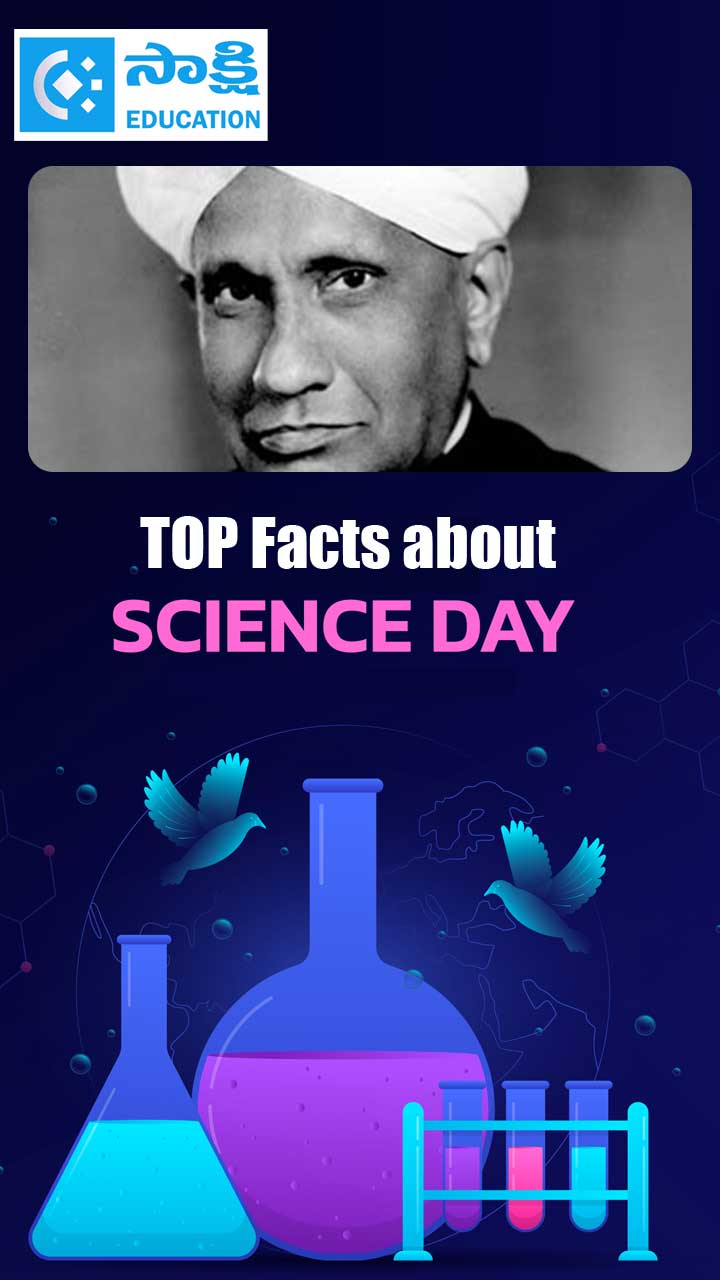Interview with IIT-Madras Director, Professor Bhaskar Ramamurthi
Sakshi Education
Professor Bhaskar Ramamurthi, Director, IIT-Madras.


Dr. Bhaskar Ramamurthi, Director, IIT-M, has been playing an instrumental role in the progress of IIT Madras and he is also motivating students with at most sense of obligation to work for country. He pursued his B.Tech in Electronics from IIT Madras in 1980, M.S. and Ph.D is Electrical Engineering from the University of California at Santa Barbara, in 1982 and 1985 respectively. After his Ph.D, he started his career at AT&T Bell Laboratories for a couple of years. His sense obligation to serve the mother land by contributing to the scientific and student community, he returned from the high paid job and joined as faculty of IIT Madras in 1986 as Assistant Professor. After his successful journey as a professor guiding many students, he was made director of IIT-M in 2011. Dr. Bhaskar Ramamurthi is with us to share his inner voice...
Sir, what is your opinion on present engineering education system in India?
A significant part of Engineering Education is targeted at students who wish to join the IT sector. This sector needs general engineering skills and specific domain knowledge is of less important. The core engineering sector needs graduates who are interested in the specific disciplines and who have acquired sound knowledge about them. The two groups of students are mixed together and the IT-sector oriented students are larger in number. This makes it difficult for the colleges to impart strong core discipline education to those who want to be engineers in the core industries.
How IIT-M is different from other engineering institutes in view of academic delivery approach?
IITM, like the best universities in the world, focuses on teaching the fundamentals in any subject, and teaching the student to learn by him/herself. All concepts have to be applied to new situations and require deep understanding. Labs are state-of-the-art and faculties bring in their research experiences into the classroom. We always assume that our graduates will be working with, or indeed inventing, entirely new concepts and disciplines that did not even exist when they studied at IITM. Hence, our aim is to teach our students to think independently, and our curriculum is oriented towards this goal.
What are the initiatives taking by IIT-M for enhancing quality of education?
IITM constantly revises the curriculum. New inter-disciplinary courses are introduced regularly. We encourage students to start early on some research, or at least on some projects. Students are encouraged to take up team projects on their own at our Centre for Innovation. We use online methods extensively to aid the classroom teaching.
Sir, in an interview you revealed the importance of inter-disciplinary courses in engineering education. How will these help a student in future?
Today’s new products and inventions are often the result of the coming together of many disciplines such as materials science, biotechnology, electronics, mechanical engineering, and so on. Unless students get insights of how different disciplines interact, through the study of some of the recent developments, they will not be able to comprehend new ideas and emerging technologies once they graduate.
Sir, especially IITs are setting courses in humanities and social sciences. Will these really benefit a student of engineering?
Humanities and social sciences are very important for engineers. After all, the products and services produced by engineers are meant for people, and it is very important to understand how people behave, think and react if one is to be addressed at their needs better. In fact, in many leading universities, research funding now prefers inter-disciplinary groups that also include social scientists.
In teaching and learning point of view, what are the major obstacles faced by IITs?
During the first year, we have to enable students from vastly different social, learning and economic backgrounds to adjust to the IIT system and start functioning confidently. Next, the entrance exam system forces students to choose the disciplines when they join, but their interests may change and they may discover their aptitude later. Helping students cope with these issues is one of our key challenges.
IITs are facing scarcity of faculty which has its effect, not only on teaching but also on R&D activities. What is your comment on this and what are solutions you would like to propose to these problems?
It is true that we are short of the requisite faculty strength due to the sudden expansion consequent to introduction of OBC reservation. IITM has been recruiting very good faculty at the rate of about 30 per year. We will be comfortably placed in another 3 years time. Even at present, we are managing by handling slightly larger classes and extra teaching load. We also employ part-time faculty whenever required. As for as R&D activities, the entire faculties perform research, and the number of PhD students is proportional to the number of faculty members. There is no problem on this front.
Sir, previously you also questioned about the global ranking systems in which even prestigious IITs also stood behind. What modifications you can suggest for survey methodology and irrespective of the survey method, what are your opinions to make IITs to stand at forefront in rankings?
IITs are ranked between 50-70 in engineering and technology globally. Some of the parameters used, such as international faculty and student strength, are not relevant to us. If these are discounted for, the IITs will rank closer to 50. I believe that with the increased emphasis on research, IITs will be placed in top 50 and climb towards top 30 in the next decade. The top engineering institutions in Europe, Japan, Korea and the US are in this group.
Sir, in fresh entrant point of view, many of students qualified for IIT by mugging the entrance syllabus. And after entering into the real world of IIT, they feel stressed. To overcome this situation what kind of attitude one has to develop within in?
As I mentioned above, fresh students come from varied backgrounds and the adjustment to the IIT system is the first challenge. We provide a lot of support to the students to help them in this. All that is required is for the student to sincerely put in his/her effort. Our experience shows that those who do this overcome the difficulties quickly.
What are your observations regarding academic skills especially in fresh entrants?
Anyone who qualifies through JEE (and many who does not!) is bright and capable. As long as they apply themselves, they come out with flying colours.
In IIT-M point of view how much importance is given to R&D and is there chance even to B.Tech students to participate in those activities?
Research is core to the IIT system. Today, we have as many research scholars on campus as UG students. We provide a lot of opportunities for our B.Tech students to participate in research. Top performing B.Tech students from the IITs, as well as the NITs and other colleges, can enter the PhD programme directly after the B.Tech.
Sir, in the recent times glossy words like: ‘Entrepreneurial skills’, ‘Incubation Center’, ‘Entrepreneurial Center’… are getting so much mileage in news. In this point, what kind of entrepreneurial teaching systems you are adopting in IIT-M?
IITM has one of the best incubation ecosystems in the country. At any time, some 30 companies are being incubated, with the majority started by students and recent alumni. We are now running courses on entrepreneurship, and we have also introduced a scheme for a B.Tech student to upgrade to B.Tech-M.S. dual degree with the M.S. degree in entrepreneurship.
To make a student an entrepreneur savvy, what kind of skill set a student has to be taught at academic level?
While we offer courses in business management, product design, etc., the most important learning comes from hands-on experience, and interacting with mentors and seniors who are ahead in the game.
In present scenario, which branch of engineering has great importance in career prospects view?
All branches at IITM have tremendous potential, of course to differing degrees, which is why we have different batch-sizes for different disciplines. It is a myth that only some branches have good opportunities.
Your suggestions to new entrants of IITs who wants to excel in their career and serve the society in better way?
IITs offer a fantastic environment to learn, not only from teachers but also from each other. Every IIT student must use the 4 or 5 years here to the utmost to transform him or herself. Our experience shows that alumni who use the opportunity provided here well, go on to shine in ways we would not even have imagined when they were students.
Sir, what is your opinion on present engineering education system in India?
A significant part of Engineering Education is targeted at students who wish to join the IT sector. This sector needs general engineering skills and specific domain knowledge is of less important. The core engineering sector needs graduates who are interested in the specific disciplines and who have acquired sound knowledge about them. The two groups of students are mixed together and the IT-sector oriented students are larger in number. This makes it difficult for the colleges to impart strong core discipline education to those who want to be engineers in the core industries.
How IIT-M is different from other engineering institutes in view of academic delivery approach?
IITM, like the best universities in the world, focuses on teaching the fundamentals in any subject, and teaching the student to learn by him/herself. All concepts have to be applied to new situations and require deep understanding. Labs are state-of-the-art and faculties bring in their research experiences into the classroom. We always assume that our graduates will be working with, or indeed inventing, entirely new concepts and disciplines that did not even exist when they studied at IITM. Hence, our aim is to teach our students to think independently, and our curriculum is oriented towards this goal.
What are the initiatives taking by IIT-M for enhancing quality of education?
IITM constantly revises the curriculum. New inter-disciplinary courses are introduced regularly. We encourage students to start early on some research, or at least on some projects. Students are encouraged to take up team projects on their own at our Centre for Innovation. We use online methods extensively to aid the classroom teaching.
Sir, in an interview you revealed the importance of inter-disciplinary courses in engineering education. How will these help a student in future?
Today’s new products and inventions are often the result of the coming together of many disciplines such as materials science, biotechnology, electronics, mechanical engineering, and so on. Unless students get insights of how different disciplines interact, through the study of some of the recent developments, they will not be able to comprehend new ideas and emerging technologies once they graduate.
Sir, especially IITs are setting courses in humanities and social sciences. Will these really benefit a student of engineering?
Humanities and social sciences are very important for engineers. After all, the products and services produced by engineers are meant for people, and it is very important to understand how people behave, think and react if one is to be addressed at their needs better. In fact, in many leading universities, research funding now prefers inter-disciplinary groups that also include social scientists.
In teaching and learning point of view, what are the major obstacles faced by IITs?
During the first year, we have to enable students from vastly different social, learning and economic backgrounds to adjust to the IIT system and start functioning confidently. Next, the entrance exam system forces students to choose the disciplines when they join, but their interests may change and they may discover their aptitude later. Helping students cope with these issues is one of our key challenges.
IITs are facing scarcity of faculty which has its effect, not only on teaching but also on R&D activities. What is your comment on this and what are solutions you would like to propose to these problems?
It is true that we are short of the requisite faculty strength due to the sudden expansion consequent to introduction of OBC reservation. IITM has been recruiting very good faculty at the rate of about 30 per year. We will be comfortably placed in another 3 years time. Even at present, we are managing by handling slightly larger classes and extra teaching load. We also employ part-time faculty whenever required. As for as R&D activities, the entire faculties perform research, and the number of PhD students is proportional to the number of faculty members. There is no problem on this front.
Sir, previously you also questioned about the global ranking systems in which even prestigious IITs also stood behind. What modifications you can suggest for survey methodology and irrespective of the survey method, what are your opinions to make IITs to stand at forefront in rankings?
IITs are ranked between 50-70 in engineering and technology globally. Some of the parameters used, such as international faculty and student strength, are not relevant to us. If these are discounted for, the IITs will rank closer to 50. I believe that with the increased emphasis on research, IITs will be placed in top 50 and climb towards top 30 in the next decade. The top engineering institutions in Europe, Japan, Korea and the US are in this group.
Sir, in fresh entrant point of view, many of students qualified for IIT by mugging the entrance syllabus. And after entering into the real world of IIT, they feel stressed. To overcome this situation what kind of attitude one has to develop within in?
As I mentioned above, fresh students come from varied backgrounds and the adjustment to the IIT system is the first challenge. We provide a lot of support to the students to help them in this. All that is required is for the student to sincerely put in his/her effort. Our experience shows that those who do this overcome the difficulties quickly.
What are your observations regarding academic skills especially in fresh entrants?
Anyone who qualifies through JEE (and many who does not!) is bright and capable. As long as they apply themselves, they come out with flying colours.
In IIT-M point of view how much importance is given to R&D and is there chance even to B.Tech students to participate in those activities?
Research is core to the IIT system. Today, we have as many research scholars on campus as UG students. We provide a lot of opportunities for our B.Tech students to participate in research. Top performing B.Tech students from the IITs, as well as the NITs and other colleges, can enter the PhD programme directly after the B.Tech.
Sir, in the recent times glossy words like: ‘Entrepreneurial skills’, ‘Incubation Center’, ‘Entrepreneurial Center’… are getting so much mileage in news. In this point, what kind of entrepreneurial teaching systems you are adopting in IIT-M?
IITM has one of the best incubation ecosystems in the country. At any time, some 30 companies are being incubated, with the majority started by students and recent alumni. We are now running courses on entrepreneurship, and we have also introduced a scheme for a B.Tech student to upgrade to B.Tech-M.S. dual degree with the M.S. degree in entrepreneurship.
To make a student an entrepreneur savvy, what kind of skill set a student has to be taught at academic level?
While we offer courses in business management, product design, etc., the most important learning comes from hands-on experience, and interacting with mentors and seniors who are ahead in the game.
In present scenario, which branch of engineering has great importance in career prospects view?
All branches at IITM have tremendous potential, of course to differing degrees, which is why we have different batch-sizes for different disciplines. It is a myth that only some branches have good opportunities.
Your suggestions to new entrants of IITs who wants to excel in their career and serve the society in better way?
IITs offer a fantastic environment to learn, not only from teachers but also from each other. Every IIT student must use the 4 or 5 years here to the utmost to transform him or herself. Our experience shows that alumni who use the opportunity provided here well, go on to shine in ways we would not even have imagined when they were students.
Published date : 07 Nov 2014 03:54PM


















